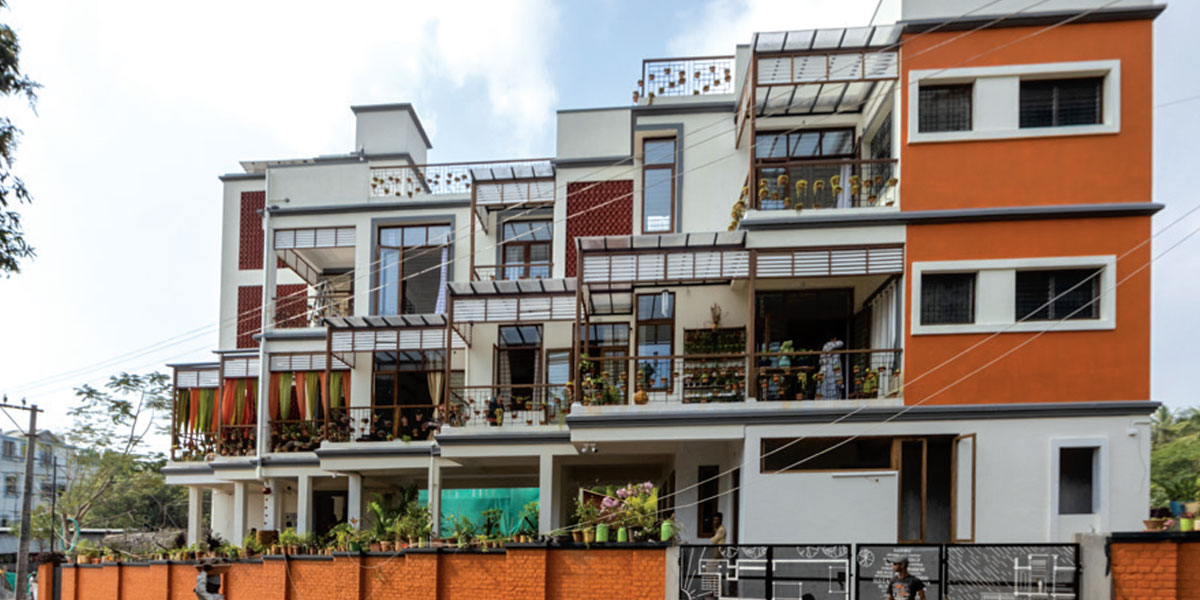ACC builds sustainable and low carbon footprint ‘Gratitude Eco-Villa’
01 Jun 2022

As part of its ‘Houses of Tomorrow’ initiative, spearheaded by ACC’s parent company, the global cement major Holcim Group houses tenements built with materials that have a near-zero carbon footprint.
Speaking on the initiative, Neeraj Akhoury, CEO India, Holcim, has said, “Our vision for Holcim India and its two operating companies – ACC and Ambuja Cements – is to make sustainable construction accessible to all in India and not just in the domain of the infrastructure and commercial buildings. We are proud to introduce the ‘Houses of Tomorrow’ initiative in India, which will help us continue inspiring future generations of home builders to adopt green products and sustainable solutions. We strongly believe that sustainability is for everyone in any location and at any price range through innovation and smart design.”
The first such project in India, named Gratitude Eco-Villa, is located in Puducherry and has been designed by Ar Trupti Doshi, Principal Architect, The Auroma Architecture, who is a well-known sustainability professional. The project uses low carbon footprint materials, climate-specific passive design and smart construction methodologies to create a holistically sustainable house while enhancing the comfort of the residents. “The most exciting thing about this initiative is the opportunity to respond to the people’s and the planet’s needs for building a sustainable future,” Doshi has said. “Auroma specialises in designing and building holistic buildings, which integrate heritage wisdom and cutting edge modern technologies. At Gratitude EcoVilla, Holcim and ACC have complimented the design and construction competence of Auroma by specifying the right green building materials and calculating their impact on the environment.”
Every construction material has a carbon footprint as some amount of the greenhouse gas – carbon dioxide (CO2) – is emitted during its manufacture. Gratitude Eco-Villa has shown that it can reduce CO2 emissions by nearly 40 per cent through the use of materials such as ECOPact green concrete, ACC Suraksha cement, fly-ash bricks and low-CO2 alternative to virgin steel reinforcements. Through the ‘Houses of Tomorrow’, ACC seeks to align the construction sector with where the earth is collectively headed i.e., a low-carbon future that consumes fewer resources and promotes the circular economy by making the most out of existing materials.
Prabodh Doshi and Roma Doshi, the owners of Gratitude Eco-Villa, have said that they strongly believe that “we do not inherit the earth from our parents but we borrow it from our children. Our buildings will outlive us. This is the legacy we leave behind for our future generations and why it must be created in a responsible manner.”
As part of the selection process, over 40 well-known architects were invited to participate in the ‘Houses of Tomorrow’ initiative. Following a review by the jury, Gratitude Eco-Villa was selected to be the first House of Tomorrow in India as it met the objective of showcasing a beautifully designed house that utilises low carbon impact materials and sustainable construction.
The Houses of Tomorrow are awarded on the basis of parameters such as design, relatability, team commitment to meeting project timelines with sustainable practices, sustainable design and architects’ commitment to sustainable practices.
Related Stories

